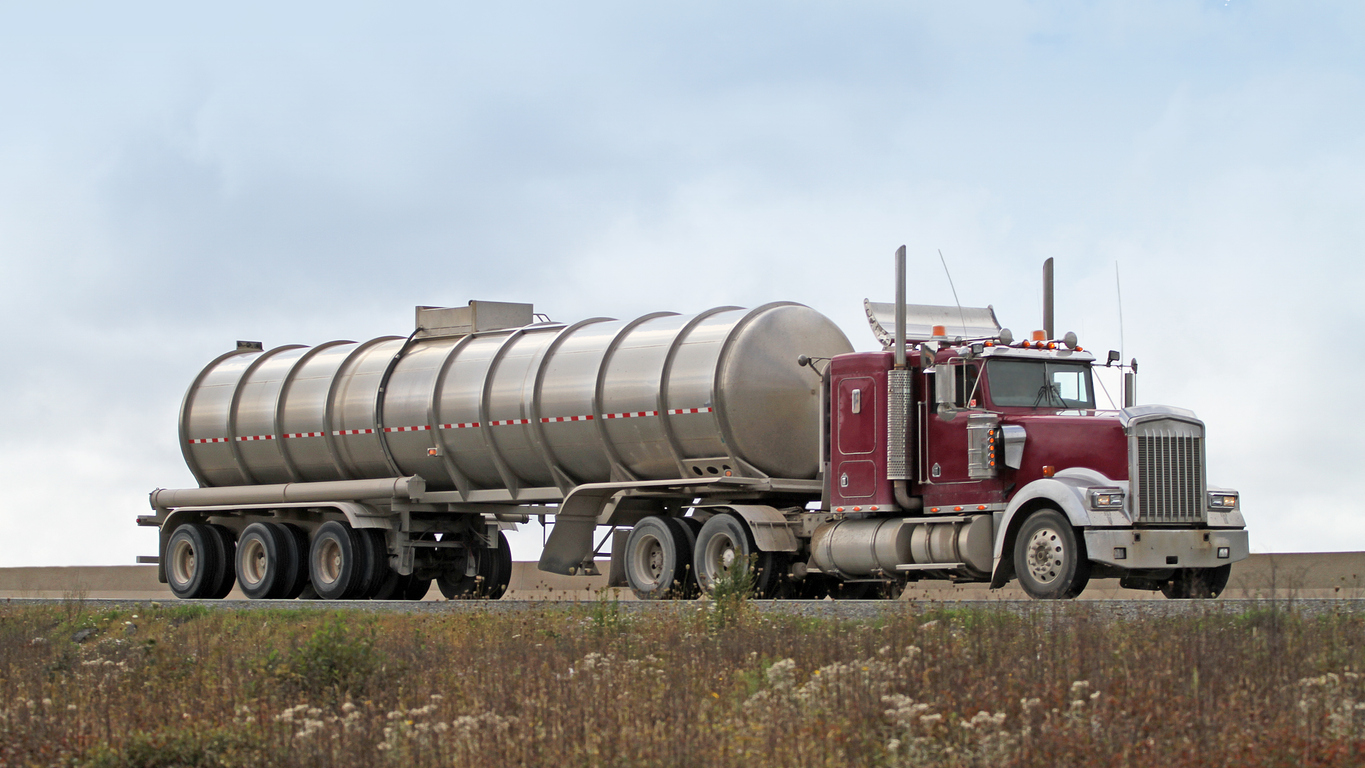 It’s essential to understand what bulk liquid transport equipment you’ll need for safe delivery. Check out our guide to see your options.
It’s essential to understand what bulk liquid transport equipment you’ll need for safe delivery. Check out our guide to see your options.
Transporting liquid in bulk quantities comes with its own set of unique challenges. There are many risks associated with bulk liquid transport, especially when dealing with hazardous chemicals. To avoid unnecessary safety issues, it’s important to understand what equipment is needed before scheduling a load. Check out our equipment guide to ensure a safe transport.
Know your tank trailer
Liquid bulk trailers will usually hold about 6,000-7,000 gallons, though there are ‘tight fill’ options that hold up to only 5,000 gallons. While the smaller option may not work for some, there are benefits to using ‘tight fill’ tanks. In these tanks, there’s less of a chance the liquid will get agitated in transit and form foam.
These tanks can be insulated or non-insulated and are made of either aluminum or stainless steel. Some are divided into several compartments while others are just a single compartment. The benefit of having 2 to 4 compartments is that the trailer can hold several different liquids at once.
If you’re shipping food ingredients like vegetable oil or juices, make sure to opt for a special food-grade trailer
These tanks are dome-shaped and have an opening at the top. Nothing but a hose and your liquid product should pass through that dome at the time of loading.
Understanding temperature control equipment
If your product is cold-sensitive, make sure to request a trailer with steam coils (most insulated trailers should have them). These coils are attached to a source of steam when the trailer is parked. The steam is able to circulate through the coils to maintain a higher temperature.
Some trailers also come with anti-freeze piping. This piping pulls antifreeze from the tractor’s radiator and moves it around the trailer, which keeps the product warm. Before requesting this feature, keep in mind that this is not meant to heat the product, but to keep it from cooling off too quickly. If the product is hotter than the antifreeze, it’s possible the system could cool your product down, which could be dangerous depending on what you’re shipping. Always talk to your carrier first about the most appropriate options.
Figuring out how many trucks you’ll need
When dealing with bulk liquid transport, the number of trucks you’ll need will depend on volume, not weight. Your carrier will ask how many gallons you’re shipping to determine whether one truck will be sufficient.
Still, weight does matter. You’ll have to know the weight of your shipment to comply with federal regulations, which are different depending on where you’re shipping. Be aware of what regulations apply to your shipment.
A guide to pumps and compressors
When loading and unloading bulk liquids, your carrier will use air compressors or pumps. An air compressor blows compressed air through a hose and is usually the most convenient and clean method. When using a pump, liquid passes through the equipment, meaning it’ll need to be cleaned after each use.
When dealing with corrosive liquids, avoid using pumps, since the liquid will likely eat through the metal.
Similarly, if you’re transporting flammable liquids, make sure your carrier isn’t using an air compressor, since the static electricity they produce could create a spark. Pumps are used for these types of liquids, as well as liquids that don’t flow easily when pushed by air.
If your product is very thick, it may require both methods. In this case, an air compressor will be used to blow the viscous liquid to the pump, which will then move it into the hose.
Know what you’ll need for a smooth ride
Bulk liquid transport can be complicated, but knowing what equipment you’ll need will make the process much simpler. To ensure your product will arrive safely, talk to your carrier about what type of goods you’re carrying, if you’ll need climate control and whether you’re shipping any flammable or hazardous products.
Through our member companies, the ShipNorthAmerica Network provides a broad range of services in specialized freight movement. Visit our blog for more articles, news and updates for the transportation industry.
